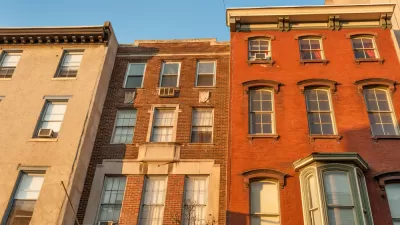The coronavirus crisis is highlighting the contributions of cities as well as their vulnerabilities and the planning issues that need to be priorities in the future.

"The impacts of the global COVID-19 pandemic are still being understood, but it does seem clear that this crisis will make a mark on cities, physically and socially, that will echo for generations," writes Rogier van den Berg.
While the pandemic has spurred debate about the role of density in the spread of the disease and efforts to contain it, urban density is needed for the provision of core services. "It’s the lack of access to essential services such as water, housing and health care, that has exacerbated the challenge of responding effectively to COVID-19 in many cities," says van den Berg.
Van den Berg also points out the clear need for access to affordable housing and public spaces and more holistic planning of green space. In addition, city and regional planning need to be better integrated, and more granular data needs to be part of post-coronavirus urban planning.
Cities will face many important questions in the future related to urban planning, says van den Berg. "Will we make cities more resilient to future crises? Will we make green and blue spaces front and center of our infrastructure investments? And will we seriously address the fact that it’s not just physically, but economically, socially and environmentally that cities are connected to their surrounding regions?"
FULL STORY: How Will COVID-19 Affect Urban Planning?

Maui's Vacation Rental Debate Turns Ugly
Verbal attacks, misinformation campaigns and fistfights plague a high-stakes debate to convert thousands of vacation rentals into long-term housing.

Planetizen Federal Action Tracker
A weekly monitor of how Trump’s orders and actions are impacting planners and planning in America.

In Urban Planning, AI Prompting Could be the New Design Thinking
Creativity has long been key to great urban design. What if we see AI as our new creative partner?

King County Supportive Housing Program Offers Hope for Unhoused Residents
The county is taking a ‘Housing First’ approach that prioritizes getting people into housing, then offering wraparound supportive services.

Researchers Use AI to Get Clearer Picture of US Housing
Analysts are using artificial intelligence to supercharge their research by allowing them to comb through data faster. Though these AI tools can be error prone, they save time and housing researchers are optimistic about the future.

Making Shared Micromobility More Inclusive
Cities and shared mobility system operators can do more to include people with disabilities in planning and operations, per a new report.
Urban Design for Planners 1: Software Tools
This six-course series explores essential urban design concepts using open source software and equips planners with the tools they need to participate fully in the urban design process.
Planning for Universal Design
Learn the tools for implementing Universal Design in planning regulations.
planning NEXT
Appalachian Highlands Housing Partners
Mpact (founded as Rail~Volution)
City of Camden Redevelopment Agency
City of Astoria
City of Portland
City of Laramie





























